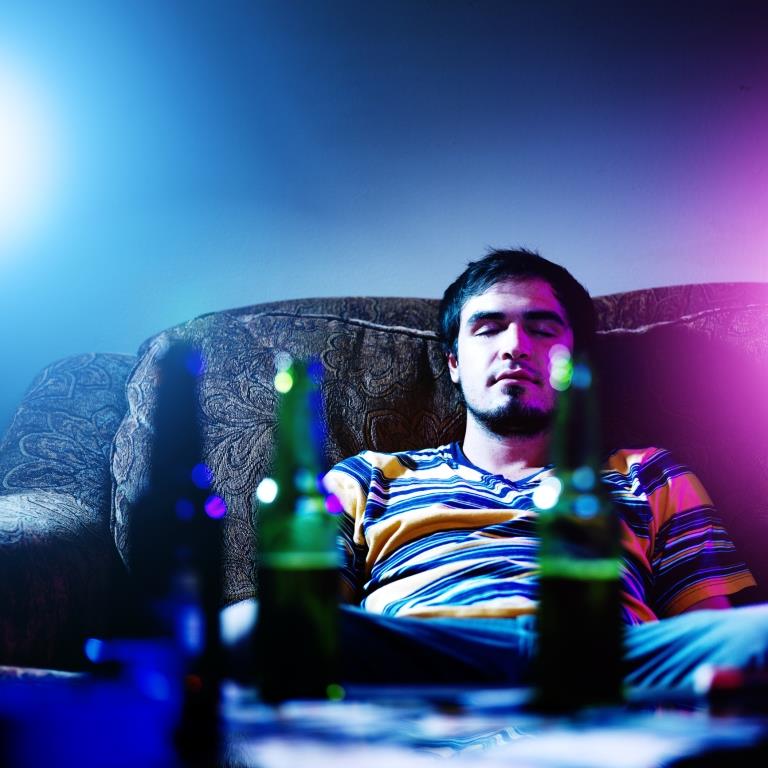You are here
Alcohol, Substance Abuse and Depression
Signs of Binge Drinking
On many college campuses, binge drinking-heavy episodic drinking-- has become an acceptable social norm. Here are some things you should know about binge drinking.
 Binge drinking can cause lasting damage. One night of heavy drinking can impair your ability to think clearly for up to 30 days. Tens of thousands of today's college students will eventually die of alcohol-related causes, such as car accidents, cirrhosis of the liver, heart disease and other diseases. Women are also more likely to develop alcohol-related organ damage, developing liver disease sooner than men, and perhaps increasing the risk for breast cancer.
Binge drinking can cause lasting damage. One night of heavy drinking can impair your ability to think clearly for up to 30 days. Tens of thousands of today's college students will eventually die of alcohol-related causes, such as car accidents, cirrhosis of the liver, heart disease and other diseases. Women are also more likely to develop alcohol-related organ damage, developing liver disease sooner than men, and perhaps increasing the risk for breast cancer.
Behavioral changes and consequences of binge drinking may include changes in overall personality, depression, declining grades, loss of interest in family and friends, over-sensitivity, moodiness, nervousness, paranoia, secretive or suspicious behaviors, and excessive talkativeness. Often people also experience difficulty in paying attention, and a general lack of motivation and energy, sometimes characterized by a "who cares" attitude.
Physical Changes are often changes in eating habits, lack of physical coordination, puffy face, hyperactivity, tremors, excessive sweating, runny nose or hacking cough.
Binge drinking can compromise your personal safety. As many as 7% of college students admit to having engaged in sexual activity as a result of alcohol influence, and 90% of all campus rapes occur when alcohol has been used by either the victim or the assailant. Alcohol lowers inhibitions, and can make people more vulnerable to troublesome situations. When women drink alcohol they are more easily impaired than men, because of the way their bodies absorb the alcohol. People's perceptions of potentially dangerous situations often change when alcohol or drugs are involved.
Are You Abusing Alcohol and/or Drugs?
Here are some questions to ask yourself about your use of alcohol and/or drugs. If you answer "yes" to most of them, then you're probably misusing them.
- Is your personality different when you drink or do drugs?
- Do you drink or do drugs to gain courage to face social situations?
- Has your drinking or drug use ever caused you to miss class or appointments?
- Do you use alcohol or drugs to escape when you are upset?
- Is it hard for you to stop drinking after you have one or two drinks?
- Do you always end up drunk, once you start drinking?
- Have you tried, and failed, to drink less alcohol or drink none at all?
- Have you tried and failed to cut down or stop using illicit drugs?
- Do you sometimes have trouble remembering what you did while under the influence of alcohol or other drugs? Do you regret doing some of the things you do remember?
- Have friends or family members tried to express their concern about your drinking or drug use?
- Has your classwork suffered because of your drinking or drug use?
- Have you needed a drink in the morning to get going after a night of heavy drinking?
Getting Help
If you need help dealing with your drinking or drug use, contact your student health and/or counseling services. Your local Mental Health America (MHA) affiliate can refer you to services as well. To find the nearest MHA affiliate, call 800-969-6642 or go to Find An Affiliate.
In addition to those services, ask friends and family for help and support. Most people who care about you will be glad to support your efforts to reduce your drinking or drug use.








this page